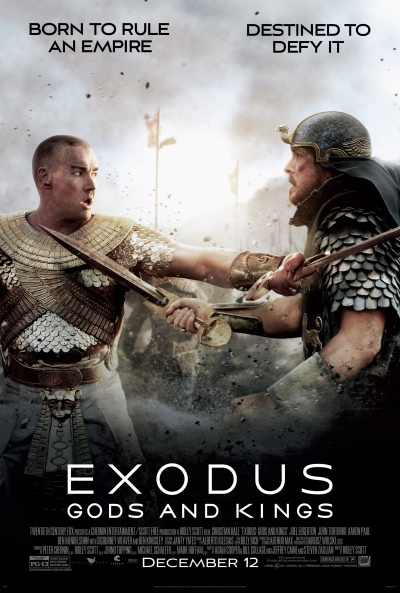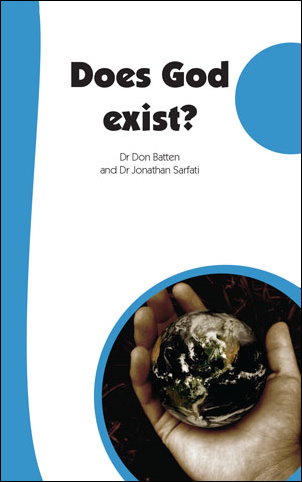A review of the movie Exodus: Gods and Kings

It’s understandable that if Christians compare Hollywood storytelling of biblical events with Scripture they may well be disappointed. Who did not come away from watching the Noah movie shaking their head at how much it differed from the Genesis account?
Would another ‘biblical epic’ Exodus: Gods and Kings be any different? It’s almost 50 years since legendary director Cecil B. DeMille gave the world The Ten Commandments with Charlton Heston as Moses; so what would Sir Ridley Scott1 deliver in retelling the account of the Jewish nation’s exodus from slavery in Egypt?
It was never likely that Scott would portray events as they really happened. But still I couldn’t help but compare this telling of Moses and the Exodus with the Hobbit movies in the sense that director Peter Jackson did far greater justice to J.R.R. Tolkien’s writings than Ridley Scott does to the Bible narrative.
Inevitably, some things in Exodus: Gods and Kings will grate with Christians particularly how God is portrayed (as a young boy!), and the fact that Moses’ brother Aaron hardly features at all. Which is puzzling, given how important the partnership between the brothers was as they confronted Pharaoh.
Christian Bale is Moses and Joel Edgerton is Ramses who takes the throne as Pharaoh after the death of his father Seti during the course of the movie. Moses and Ramses are ‘cousins’.
Note: Although there are many views, we cannot know for sure who was Pharaoh at the time of the Exodus. This is because, although pharaohs are often mentioned in the accounts of Joseph (in Genesis) and Moses (Exodus), they are not mentioned by their names, unlike later writings in the Old Testament. The word ‘Pharaoh’ is mentioned 209 times in Genesis and Exodus alone.2 Hollywood always leans towards Ramses II because the Bible mentions the Hebrews building the cities Pithom and Raamses (Exodus 1:11). However, there are good reasons to presume that the cities were not known by that name during the Hebrew occupancy of Egypt, and also that Ramses II came to the throne many years after the biblical date for the Exodus. For more on this see Egyptian chronology and the Bible: framing the issues.
Early in the movie there is a gory battle between the Egyptians and the Hittites. During this battle Moses, a general, saves Ramses’ life thus fulfilling a ‘prophecy’ we learn of in the opening scenes that “in the battle a leader will be saved and his saviour will some day lead”.
So it then becomes apparent that Moses and Ramses will from that point be at loggerheads. The story develops with the tension slowly building.
When Moses goes to the area where the Hebrew slaves are producing materials for building the pyramids (a historical inaccuracy), he meets some of the elders to establish if they are going to rebel against Pharaoh and tells Nun (Joshua’s father, Exodus 33:11) that he is wrong to think the people can return to Canaan.
Nun confronts Moses with his true heritage and explains how his parents had his sister help save him from a decree at the time that all first-born Hebrew boys should be killed. The explanation reasonably follows the biblical account, but Moses’ reaction and the dramatic scenes that follow with him being sent into exile are not so accurate.
Moses does meet and marry Zipporah and have a son named Gershom, as in the Bible, but his first encounter with God at the burning bush is presented in an ‘interesting’ way.
The dialogue includes:
Moses: Who are you?
God: Who are you?
Moses: I’m a shepherd.
God: I thought you were a general. I need a general.
Moses: Why?
God: To fight. Why else?
Moses: Fight who? For what?
God: I think you know. I think you should go and see what’s happening to your people now. You won’t be at peace until you do. Or are they not people in your opinion?
Moses: Who are you?
God: I am.

When Moses returns to Egypt he goes to see Nun and his son Joshua, meets his own brother Aaron and thereafter comes the confrontation with Ramses, the plagues and the escape through the Red Sea. The plagues and the Red Sea parting are presented in such a way that an all-powerful God is not really at work. And none of the biblical dialogue between Moses and Pharaoh concerning the plagues is incorporated. Nor is there any mention of the blood to be applied in the pattern of the points of a cross on the doorposts. The Bible indicates that judgment would pass over those so covered by the blood of the slain lamb—“without blemish”—such a clear pointer to the coming Messiah, God”s perfect Passover Lamb. Perhaps that should, while saddening us, not surprise us given that it links so powerfully to the Gospel.
There is even a ‘scientist’ trying to explain away the plagues and his advice is unwelcome, to say the least, as Ramses becomes more irrational.
Unlike the biblical account in which Moses and Aaron go before Pharaoh on several occasions to entreat him to set their people free, the movie deals with it in a dramatic conversation between Moses and Ramses.
Part of the conversation goes like this, and seems to owe more to 21st century sensibilities than to either biblical accuracy or historical authenticity:
Moses: I’ve been told that things here have become … much worse.
Ramses: Things are better than they ever have been, Moses. We have order.
Moses: Order? Order? The slaves, their bodies burn night and day now; I’ve seen it with my own eyes; you call that order?
Ramses: They’re slaves, Moses.
Moses: They’re Egyptians; they should be treated as Egyptians; they should have the same rights; they should be paid for their work; or … you must set them free.
What can be said of the movie? An epic?—Yes. Too long?—Yes. Sex scenes?—No. Biblically accurate?—Somewhat. Entertaining?—Reasonably. Too much violence?—Some may think so.
But if you can accept that it’s Hollywood with a semblance of real history thrown in—and not expect too much—you may even enjoy it, though likely tinged with sadness about the ‘missing bits’.
Now if only I could get my money back from that Noah movie debacle.
For a subsequent review by UK creationist Phil Robinson after the movie appeared in his area, see Hollywood’s Exodus: Gods and Kings film—a review
Comparisons between the Exodus narrative and the movie storytelling | |
|---|---|
| Some individuals mentioned in Exodus | Individuals featured in the movie |
| Moses | Moses |
| Pharaoh (not named) | Seti |
| Ramses (succeeds Seti) | |
| Aaron (Moses’ brother and prophet) | Aaron |
| Jethro (Moses’ father-in-law) | Jethro |
| Miriam (sister of Moses and Aaron) | Miriam |
| Zipporah (Moses’ wife) | Zipporah |
| Pharaoh’s daughter who raised Moses (not named) | Bithiah |
| Pharaoh’s wife (not named) | Tuya (Ramses’ mother) |
| Nefertari (Ramses’ wife) | |
| Joshua | Joshua |
| Nun | Nun |
| Hegep (corrupt viceroy in charge of Hebrews) |
The plagues | |
|---|---|
| Exodus account | Movie (portrayed as continuous events) |
| Water becomes blood | Nile crocodiles go on killing rampage |
| Frogs | Frogs |
| Lice | Unclear in the scenes between frogs and flies |
| Flies | Flies |
| Diseased livestock | Diseased livestock |
| Boils | Boils |
| Hail | Hail |
| Locusts | Locusts |
| Darkness | Darkness |
| Death of first-born | Death of first-born |
References and notes
- Director Ridley Scott is well known for the Alien franchise, and box office successes such as Gladiator, Blade Runner and Black Hawk Down. He received a knighthood from Queen Elizabeth in 2003 for his services to the film industry. He is most certainly not a Bible-believer. Return to text.
- Bates, G., Egyptian chronology and the Bible framing the issues, 2 September 2014; creation.com/egypt-chronology. Return to text.







Readers’ comments
Comments are automatically closed 14 days after publication.